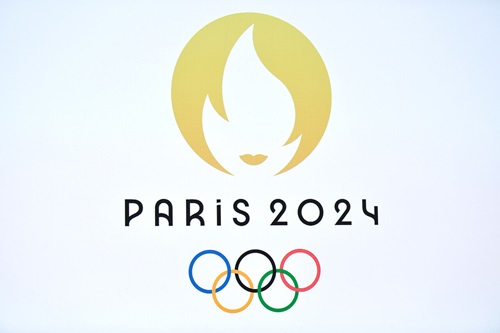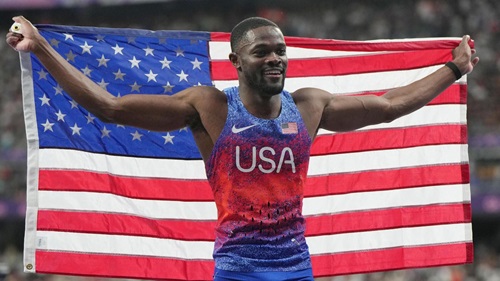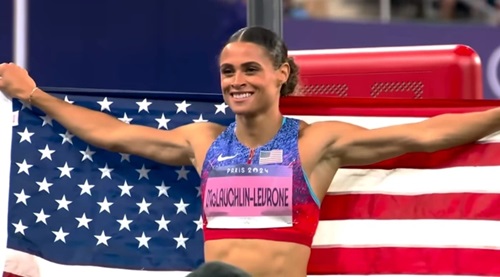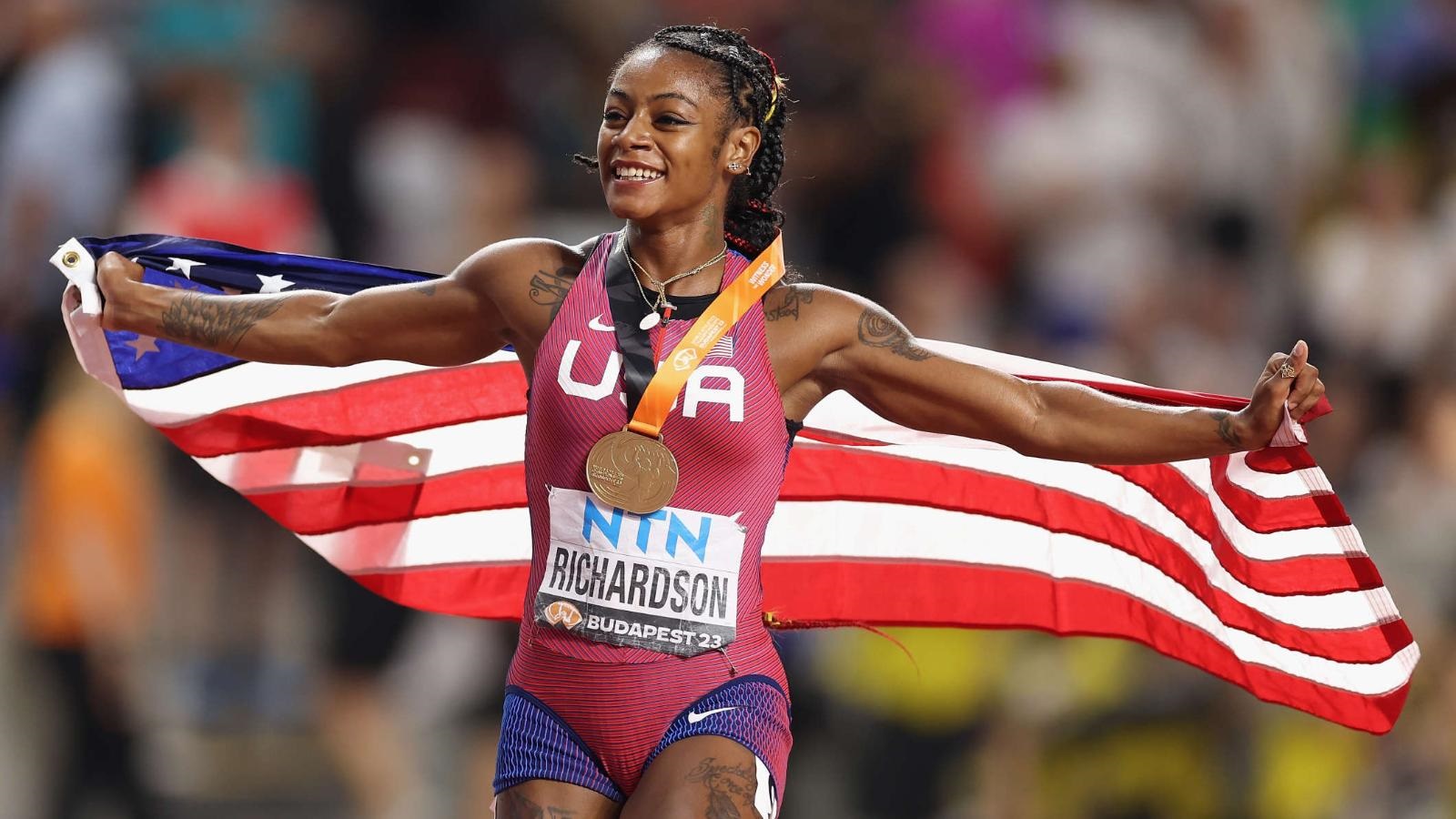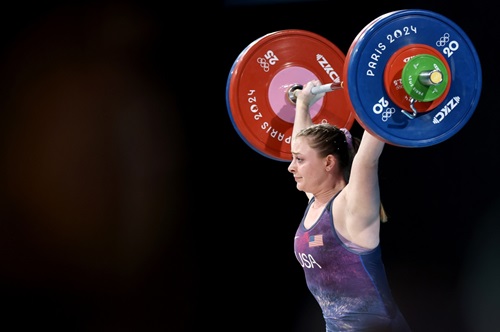By Lucas Camacho
We’re in the final few days of the Olympics, and it has been exciting and interesting. Here are a few of the storylines to follow as we approach the closing ceremonies.
BIG GAMES, BIG AUDIENCES
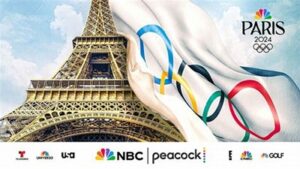 NBCUniversal’s presentation of the final Thursday of Paris Olympics competition on NBC, Peacock, and across key NBCU platforms posted a Total Audience Delivery (TAD) of 28.5 million viewers, according to official data from Nielsen and Adobe Analytics – nearly doubling the audience for the comparable Thursday of competition for the Tokyo Olympics (14.5 million across all platforms). Beginning with Friday’s Opening Ceremony, NBCUniversal has a posted a 14-day Total Audience Delivery average of 31.6 million viewers across the combined live Paris Prime (2-5 p.m. ET) and U.S. primetime (8-11 p.m. ET/PT) time periods – up 77% from Tokyo (17.8 million). All of these facts and figures can only be summed up with a few simple words: HOLY MOLE HOLES!
NBCUniversal’s presentation of the final Thursday of Paris Olympics competition on NBC, Peacock, and across key NBCU platforms posted a Total Audience Delivery (TAD) of 28.5 million viewers, according to official data from Nielsen and Adobe Analytics – nearly doubling the audience for the comparable Thursday of competition for the Tokyo Olympics (14.5 million across all platforms). Beginning with Friday’s Opening Ceremony, NBCUniversal has a posted a 14-day Total Audience Delivery average of 31.6 million viewers across the combined live Paris Prime (2-5 p.m. ET) and U.S. primetime (8-11 p.m. ET/PT) time periods – up 77% from Tokyo (17.8 million). All of these facts and figures can only be summed up with a few simple words: HOLY MOLE HOLES!
THE MEDAL RACE
With only a few days left to go in the Olympics, one thing is definitely clear: no one is catching the United States’ medal count. As of this writing, Team USA has earned a whopping 126 medals. However, the United States and China remain in a dogfight for the most gold medals, with both countries tied at 40 gold medals a piece. This comes with an asterisk, however, as the cloud of suspicion remains over the Chinese team following the doping scandal from the last games in Tokyo (China was never punished for any actions, and the United States has remained firm in forcing anti-doping agencies to do better in the future).

BURNING UP THE TRACK
The majority of Team USA gold medals have been coming from the track recently. Rai Benjamin took home the gold in the men’s 400m hurdles with a blistering time of 46.46 seconds. This comes after Sydney McLaughlin-Levrone’s world-record run yesterday in the women’s 400m hurdles. This is the second time the US has swept both events. Also, the US women took home the gold in the women’s 4×100 meter relay thanks again to track star Sha’Carri Richardson. The US men, however, failed to medal in the men’s relay due to a disqualification because of a faulty handoff. American track legend Carl Lewis wrote on X (formerly Twitter) for a complete overhaul of the USAFT (USA Track & Field). On a side note, stepping away from the track, a big congratulations to Olivia Reeves for winning the US its first gold medal in weightlifting in 24 years.
GOLD MEDAL MATCHES
The biggest upcoming events for the United States will be in Basketball and Soccer. Team USA has advanced to the gold medal match for men and women’s basketball and in women’s soccer. The USNWT will face off against the mighty Brazil as the team goes for its first gold since the London games and its first under new manager Emma Hayes. The United States women coasted over Australia 85-64 to advance to the gold medal match. The men, however, had a much more difficult time after trailing most of their game against Serbia, led by NBA star Nikola Jokic, until a late surge led by Stephen Curry and LeBron James. Both the men and women’s basketball teams will be facing host nation France for the gold medal.
LOOKING AHEAD TO LOS ANGELES
 With the games nearing their close, it’s important to remember the next summer games will be on US soil in our very own backyard: Los Angeles. This will be the third time Los Angeles has hosted the games, having previously done so in 1932 and 1984. The 1932 Summer Olympics marked a pivotal moment for Los Angeles, showcasing the city’s ability to host large-scale international events. Despite the economic challenges of the Great Depression, the Games demonstrated the city’s potential as a global destination. The success of the 1984 Games further solidified LA’s reputation, introducing innovative financing strategies that relied less on government funding and more on corporate sponsorship and ticket sales. The economic implications of hosting the Olympic Games are significant. The 1984 Olympics generated an estimated $1 billion in revenue for the local economy, creating thousands of jobs and boosting tourism. For the 2028 Games, Los Angeles is projected to see similar, if not greater, economic benefits. The investment in infrastructure, including upgrades to public transport and sports facilities, will not only enhance the Olympic experience but also leave a lasting legacy for future generations. Additionally, the global exposure that comes with hosting the Olympics can elevate Los Angeles as a premier tourist destination, attracting visitors long after the Games conclude. So, we have something to look forward to in four years!
With the games nearing their close, it’s important to remember the next summer games will be on US soil in our very own backyard: Los Angeles. This will be the third time Los Angeles has hosted the games, having previously done so in 1932 and 1984. The 1932 Summer Olympics marked a pivotal moment for Los Angeles, showcasing the city’s ability to host large-scale international events. Despite the economic challenges of the Great Depression, the Games demonstrated the city’s potential as a global destination. The success of the 1984 Games further solidified LA’s reputation, introducing innovative financing strategies that relied less on government funding and more on corporate sponsorship and ticket sales. The economic implications of hosting the Olympic Games are significant. The 1984 Olympics generated an estimated $1 billion in revenue for the local economy, creating thousands of jobs and boosting tourism. For the 2028 Games, Los Angeles is projected to see similar, if not greater, economic benefits. The investment in infrastructure, including upgrades to public transport and sports facilities, will not only enhance the Olympic experience but also leave a lasting legacy for future generations. Additionally, the global exposure that comes with hosting the Olympics can elevate Los Angeles as a premier tourist destination, attracting visitors long after the Games conclude. So, we have something to look forward to in four years!


